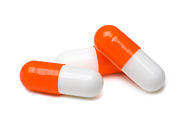
Attention Deficit/Hyperactivity Disorder (ADHD) is a disorder that is characterized by inattention, hyperactivity, and/or impulsivity.
Often, certain kinds of medications called stimulants are used to treat ADHD. These medicines are designed to help people with ADHD focus better and to be less distracted.
Stimulant medications, like amphetamines and methylphenidate, have a calming effect on people because they increase the level of dopamine and norepinephrine in the brain. Other non-stimulant medications are also used for ADHD and work to treat ADHD by acting on other receptors in the brain.
All ADHD medications require a prescription for use. It is important to remember that sharing ADHD medication with someone else can cause the person harm. Prescribers evaluate a person’s current medical history and past medical conditions before they prescribe a medication.
Examples of ADHD Medications:
|
Stimulants |
|
|
Generic Names |
Brand Names |
|
Amphetamine Salts |
Adderall® |
|
Dexmethylphenidate |
Focalin® |
|
Lisdexamfetamine |
Vyvanse® |
|
Methylphenidate |
Concerta® QuilliChew® |
|
Non-Stimulants |
|
|
Generic Names |
Brand Names |
|
Atomoxetine |
Strattera® |
|
Clonidine |
Catapres® Kapvay® |
|
Guanfacine |
Intuniv® |
What can happen when these medications are taken inappropriately?
Taking more of these medications than directed can have negative consequences, including:
How can misuse of ADHD medications be prevented?
If you’re taking a medication for ADHD, these steps can help prevent a medication poisoning:
Call NC Poison Control, your doctor, or your pharmacy if you have questions about ADHD medications or possible drug interactions with other medications. You don’t have to wait for a problem to arise before calling NC Poison Control. You can call with questions, too.
What should you do if you or someone you know has taken ADHD medications incorrectly?
If the person is not breathing or not responsive, call 911 immediately. Otherwise, call NC Poison Control at 1-800-222-1222 or chat from this site for further treatment advice.
If you or someone you know is struggling with substance abuse, click here to find a treatment facility.